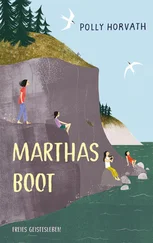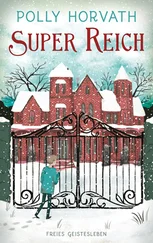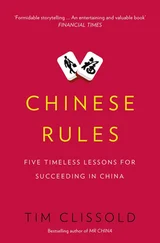Truth be told, what food I have now makes a fork useless, barely holding together on the tines. Nowadays, I eat with my hands, manners be damned, though once they gleamed like a new set of steak knives. Who the hell would I try to impress, now, in this bombed-out husk of a building under a crumbling roof, sky streaming in through strung-together sheets of tar and salvaged Sheetrock, funneling water when it rains? Who will I impress — the occasional vagrant who wanders in, having sniffed out a human presence? Or the dark-eyed urchin who comes late afternoons in his second skin of tattered rags? Every day I set aside a few morsels for him to dissolve against his palate.
Sometimes, watching his frantic chewing, I pity him — he’ll never know what food can be. Yet at times I envy him for what he hasn’t known — pumpkin bisque lapping against an atoll of salsa, steam rising from fresh-torn coriander brioche au brocciu , rivulets of mango waiting beneath like buried treasure. He won’t know braised lamb shanks you’d swear were fruit, nor the quivering tangle of Singapore noodles, at once soft and crunchy, nor sesame chicken that winks with a thousand knowing iguana eyes. He’ll never witness the birth of naan , warm and glistening and mottled with birthmarks. He won’t know the translucent green of cabbage drizzled on sushi rice, nor the bolder greens of draped asparagus, nor the snarling green of a cauldron of wasabi. He’ll never burrow in the darkness of elk roulade stuffed with morels, nor come face-to-face with duck confit brindled with chilled open figs. He won’t know the suppleness of shrimp reincarnated on the tongue, nor the squid whose toughness demands that you chew with attention, a bracelet or belt. He won’t know the way smoke’s essence can penetrate polenta right down to the plate, nor ginger’s habit of loitering at the surface, forgotten till you trip over it. He’ll never know the golden, salty saxophone solo of a jiaozi dumpling, its scent nearly palpable as it makes its way across the room.
The siege has been on so long, it is no longer front-page news, barely news at all. Every commentator in the world has already weighed in, and, nothing having changed for the better part of a decade, the world has, quite reasonably, moved on. Olympics have come and gone, and we no longer send athletes (we were known for water polo), since even if they were able to slip out and get there, how could they compete against those who are well rested and fueled, mitochondria rippling in their cells?
But you have to imagine Vassilonia before this siege laid waste to us. When you look at us now, skin-and-bone strays, you’d hardly know how cherubic and jaunty we were once. God, we relished nothing more than walking off our meals in the fading of daylight. To walk through the city during its heyday was to navigate a thick, aromatic fog, the very air a front of flavor punctured by pungent crosscurrents—“Ah,” you’d say, “Galvin is jacketing his prawns in shiitake again. . or is that Devon experimenting with saffron? Both?” You’d bump into someone you knew and all would belch, one at a time like cars at a four-way stop, and they’d try to guess what the others had eaten — such were good manners, then. People were innocent, dressed differently (rounded, flaps and slits to aerate, exuding formality even on days off). An unfathomable gulf divides us from that time, makes it so hard to believe that people were people then, moving about in three robust dimensions with vivacity, coughing and wheezing, chortling and flirting and kissing and eating above all, eating and eating and eating, doing so with the greatest conviction, with vigor and savoir faire and newlywed lust lavished on food rather than flesh: At the morning’s first, semiconscious stirring, they ate, midmorning ate again, midday and midafternoon, twice in the evening, inventing names for meals —argent, vespens, efferzeti —mixing and matching dishes from far-flung corners of the globe, things too loosely assembled to be called dishes, flinging spices blindly into the waiting maws of pots, sometimes checking the label afterward, the stovetop a welter of activity, a percussive clamor, the cook whistling or gossiping all the while — unthinking, careless, saucy. They needed no justification for their indulgence; food was the cornerstone of Vassilonian existence. Our existence — I remind myself, “this people” was me.
Even in the thick of company, though, I always ate alone. Part of me, at least, was inveterately, metaphysically alone.

It started, Vassilonia, as a faceless, generic city, a seat of colorless commerce and bleak industry. It was during a precipitous downturn in the economy that the restaurateurs, calling themselves “The Fearless Nine,” banded together and formed a coalition, deciding that it would no longer be feasible for people to eat out in the foreseeable future unless urgent measures were taken. Led by the mustachioed visionary Antonio Corrido, they vowed that rather than shutting down or waylaying pedestrians with pleading offers of cheap meals, they’d feed everyone as long as they were able through the crisis. After all, people had to eat, and why not well? They gambled rightly — the dollar may have been worthless paper, but that summer and fall the earth yielded up a particularly bountiful growing season, and there was a general sense of ebullience. Soon the number of restaurants had doubled to eighteen, and not long after that there were dozens, as people caught on to the fact that the industry could somehow remain just slightly to the side of the mainstream economy, which itself was already starting to recuperate.
An ethos began to take hold with unspoken rules. Don’t try to compete with your neighbor — don’t try to one-up him on his most popular dishes, steal her secret recipes, mimic their decor. Be different, strive for uniqueness, and eventually people will line up at your door. If offered the choice between Cerignolas and Luganos, it is human nature to choose one type of olive on Monday and another on Tuesday, but if faced with seven brands of Kalamata, they’ll gravitate toward one jar and cling to it. Hence, you had to be nonredundant. This ensured that you could get not only Chinese but also Mandarin, Szechuan, Guayadongian; not just Indian but Navratan, Gujarati; not merely Moroccan but that indigenous to the town of Tafroute; the cuisines of Tasmania, Ganzoneer, Tibet, Raedmeon, Argentina, El Salvador, Vitamora, and Morrisania were all readily available.
Moreover, you would not eat, yourself, at your own establishment except on rare occasions. No, you had to go out, sample the city’s wares, pump money and life into the economy, or else you were thought stingy, provincial, haughty. What little money you’d save by remaining in your own dining room would pale next to the loss in reputation. The phrase “eating at home” in the vernacular came to refer to masturbation.
And you could always tell a Vassilonian by his or her conversation above all. They were perpetually talking about food, reminiscing about a great meal — never about whatever they were eating at that moment, no matter how splendid, aromatic, and memorable it was. That would be for another day, another meal. Facial expressions, little gasps of delight would have to suffice to compliment the chef, who, after all, might not even be there — he might have already slipped out to eat at another establishment, replaced by the next shift. Always, the conversation at the table revolved around great meals of the past. It was only in this contrast — between what was now being eaten and what they’d eaten in the past — that they made sense of taste, for flavor, it was assumed, only existed as a set of contrasts. Trying to describe what was right now on your tongue was like trying to cup the present in your hands — invariably it would slip through the fingers. Certainly there were philosophers who offered alternative theories — that, for instance, our brains were equipped with a universal template that enabled them to assemble complex flavors from simpler, more elemental ones without any effort or training. Still, the theory of contrasts predominated, maybe because people were by then so attached to the delectation of endlessly sifting and comparing their experiences.
Читать дальше













